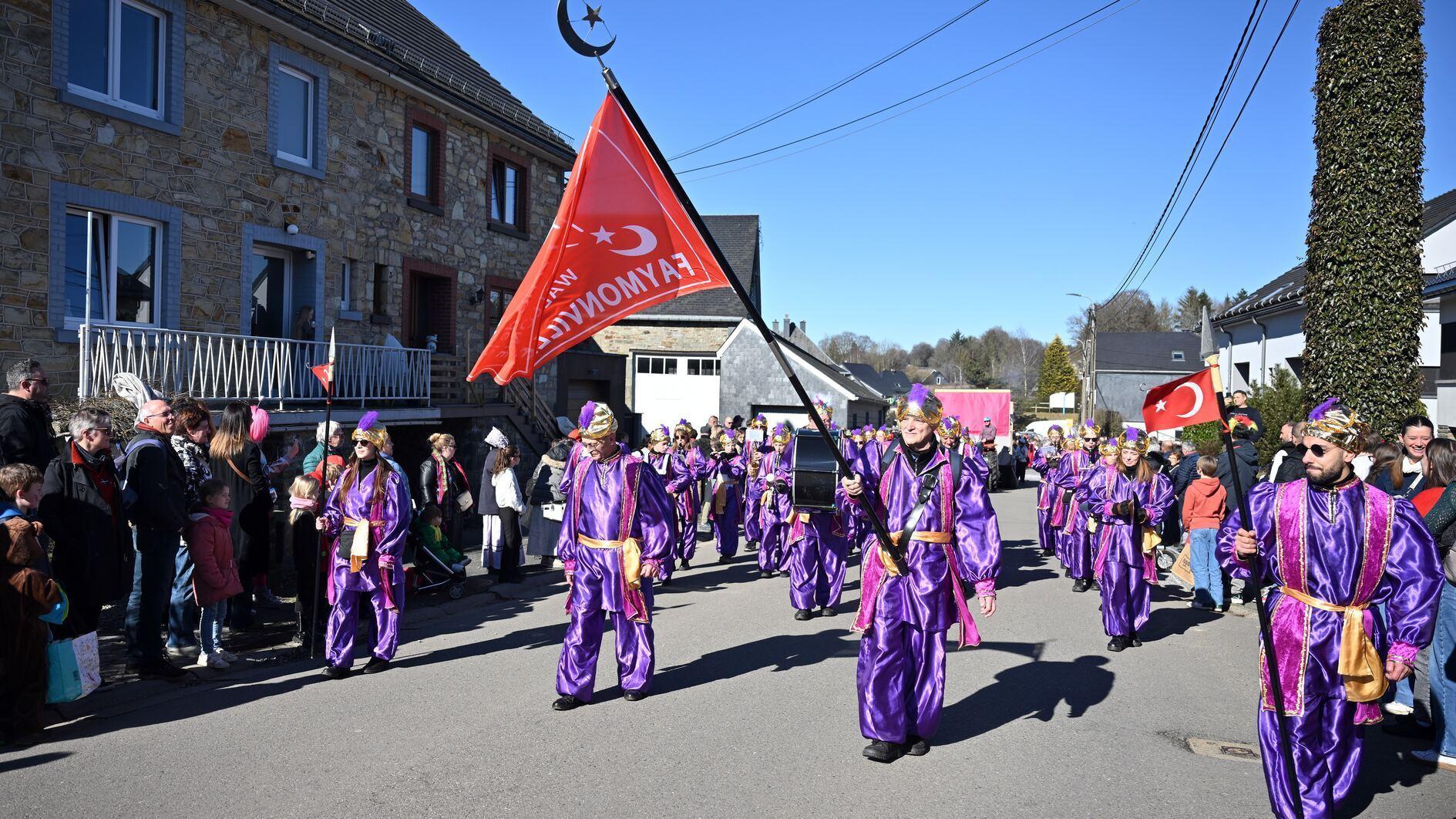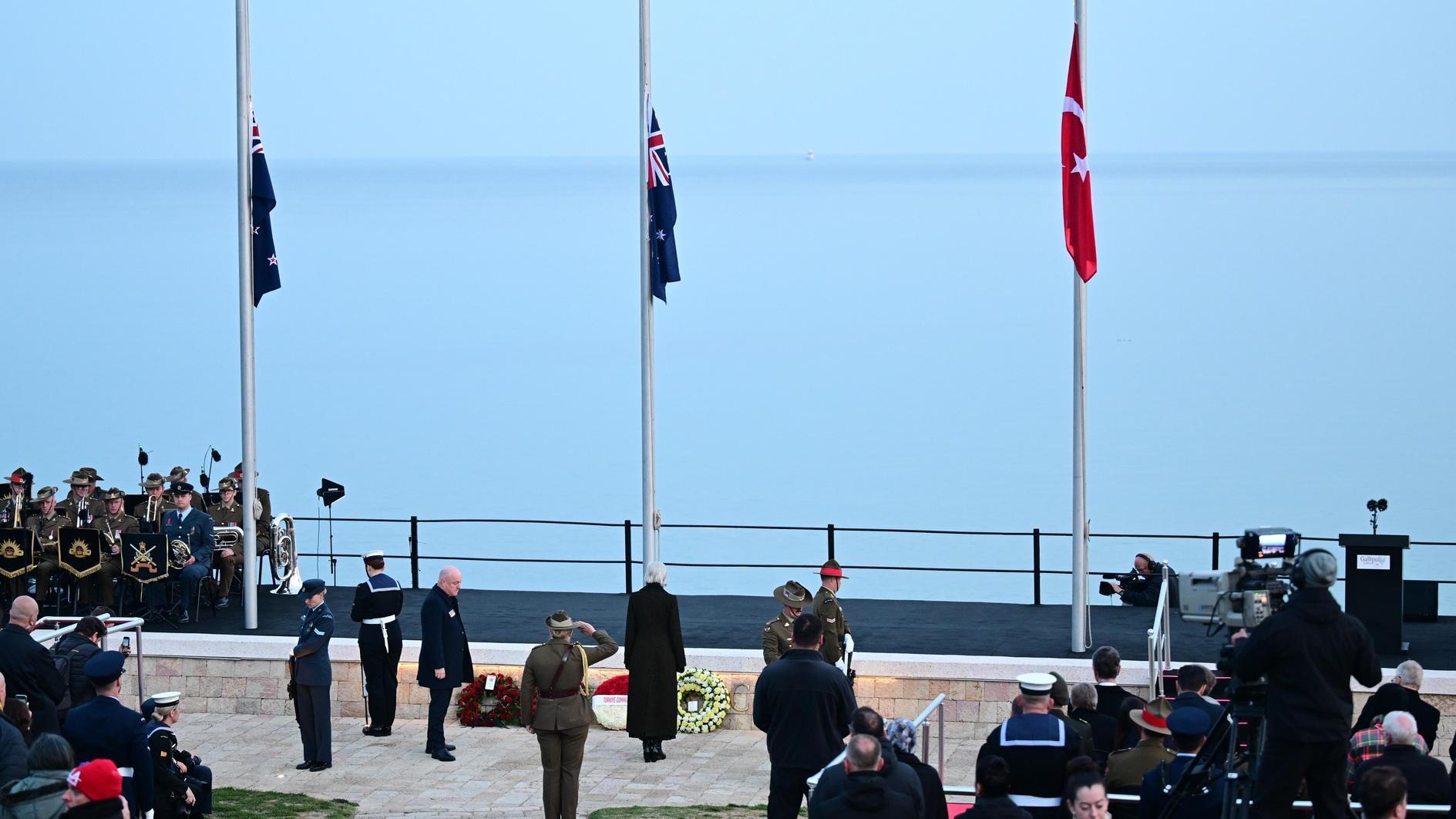Belgium’s ‘Turkish village’ hosts vibrant carnival
LIEGE

The Belgian Faymonville village of Liege, known as the country’s “Turkish village,” burst into color and celebration as it hosted its traditional carnival.
Belgian villagers in Faymonville have been calling themselves "Turk" for centuries. According to rumors, while people were collecting money for victims who suffered from Turkish occupation in Europe in the 16th and 17th centuries, villagers of Faymonville refused to give money and, thus, they were declared "enemy of the Christian world and friend of Turks."
Another rumor claims that Faymonville villagers rejected to join the Crusade and fight against Turks, and then received the name "Turk."
Today, the villagers turn this heritage into a grand spectacle, with its carnival becoming a symbol of cultural unity and festivity.
Dressed in vibrant costumes, Faymonville locals paraded through the streets, tossing confetti and sweets to cheering spectators, with a marching band waving Turkish flags leading the procession.
With streets draped in red and white, a lively parade and a festive atmosphere, the event once again drew not only locals but also visitors from other cities.
Among them was Nesime Östen, who traveled from the capital Brussels with her family. Noting that she dreamed of visiting the unique hamlet for years, she underlined that she felt a sense of pride upon seeing the Turkish flag flying across the streets.
Kemal Östen, also from Brussels, echoed the sentiment, expressing his pride in witnessing the display of Turkish heritage in the village.
The event even attracted visitors from beyond Belgium — a citizen named Köksal Oldoğan made the journey from Germany’s Cologne to attend the carnival. “To take part in a carnival with the Turkish name and flag in a country called the capital of Europe made me feel proud. We must continue to fly our flag wherever we go.”
















